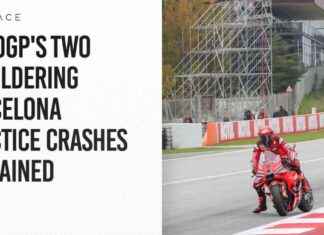After a 24-hour postponement, officially for logistical reasons, Iranian President Ebrahim Raisi begins his three-day African tour this Wednesday, July 12, in Kenya, Uganda and Zimbabwe. This is the first tour of Africa by an Iranian leader for eleven years. For many experts and analysts, this is indeed a new stage in Tehran’s diplomatic offensive. Indeed, this trip comes as Tehran tries to break its diplomatic isolation by finding new allies on the international scene. Iran’s African ambitions are not new: since 1979, the Iranian presence on the African continent has been part of a logic of ideological expansion and anti-Americanism.
For Alireza Peyman-Pak, former head of Iran’s Trade Promotion Organization and currently an official in the Ministry of Agriculture, Iran had “overlooked” opportunities in Africa in recent years while “China and a number of Tehran’s neighbours, including Turkey and the United Arab Emirates, have strengthened their presence on the continent,” he said on state television last week. Officially, Iran exported $1.2 billion worth of goods and services to Africa last year.
President Raisi, accompanied by the Minister of Foreign Affairs and a delegation of leading businessmen, was welcomed in the morning by the Kenyan Head of State, William Ruto. The two leaders pledged to strengthen ties between their two countries.
After their bilateral meeting, Mr. Raisi described his visit to Kenya as a “turning point in the development of relations between the two countries”, adding that these discussions had reflected “the determination” of the two countries to “expand their economic cooperation”. , commercial, political and cultural”.
William Ruto for his part described Iran as “an essential strategic partner of Kenya” and announced the bilateral signing of five memorandums of understanding in various sectors including information technology, investment promotion and fisheries. “These protocols will further develop and deepen our bilateral relationship to enable more sustained growth and development between our two countries,” he added.
Mr. Ruto added that Mr. Raisi had informed him of Iranian plans to set up a factory in the southern port city of Mombasa “to produce an Iranian-made vehicle called Kifaru, which means ‘rhinoceros’ in Kiswahili (the national language of Kenya, editor’s note).
Africa has become a more intense diplomatic battleground in recent months between the West and Russia, at loggerheads since the Russian invasion of Ukraine and each trying to rally African countries to their sides. The latter have been hit hard by the sharp rises in prices, food in particular, recorded since the beginning of this conflict.
Iranian Foreign Ministry spokesman Nasser Kanani described the three-day tour as a “new starting point” that could boost economic and trade ties between Tehran and African countries. Iran and the three countries visited this week also have “common political views”, he said on Monday.
Tehran has at the same time strengthened its ties with China and Russia as part of a strategy turned towards the East, while relations remain tense with the West, despite indirect discussions with Washington, particularly on nuclear power. Last week, Iran joined the Shanghai Cooperation Organization (SCO), a regional structure created in 2001 of which China and Russia are founding members.
After visiting Indonesia, Raisi visited three “friendly countries” in Latin America – Venezuela, Nicaragua and Cuba – in June, where he denounced “imperialist powers”, including the United States.
After Kenya, he must then travel to Uganda and Zimbabwe, to meet his counterparts Yoweri Museveni and Emmerson Mnangagwa in particular. In Kampala, the two heads of state will hold bilateral talks, address the media and a business forum during the visit, said Faruk Kirunda, Ugandan leader’s deputy press secretary. The visit “aims to strengthen cooperation and trade between the two countries”, Kirunda told AFP.
Next meeting for Iranian power on the international diplomatic scene, in August, at the summit of the Brics (Brazil, Russia, India, China, South Africa), in Johannesburg, South Africa.







